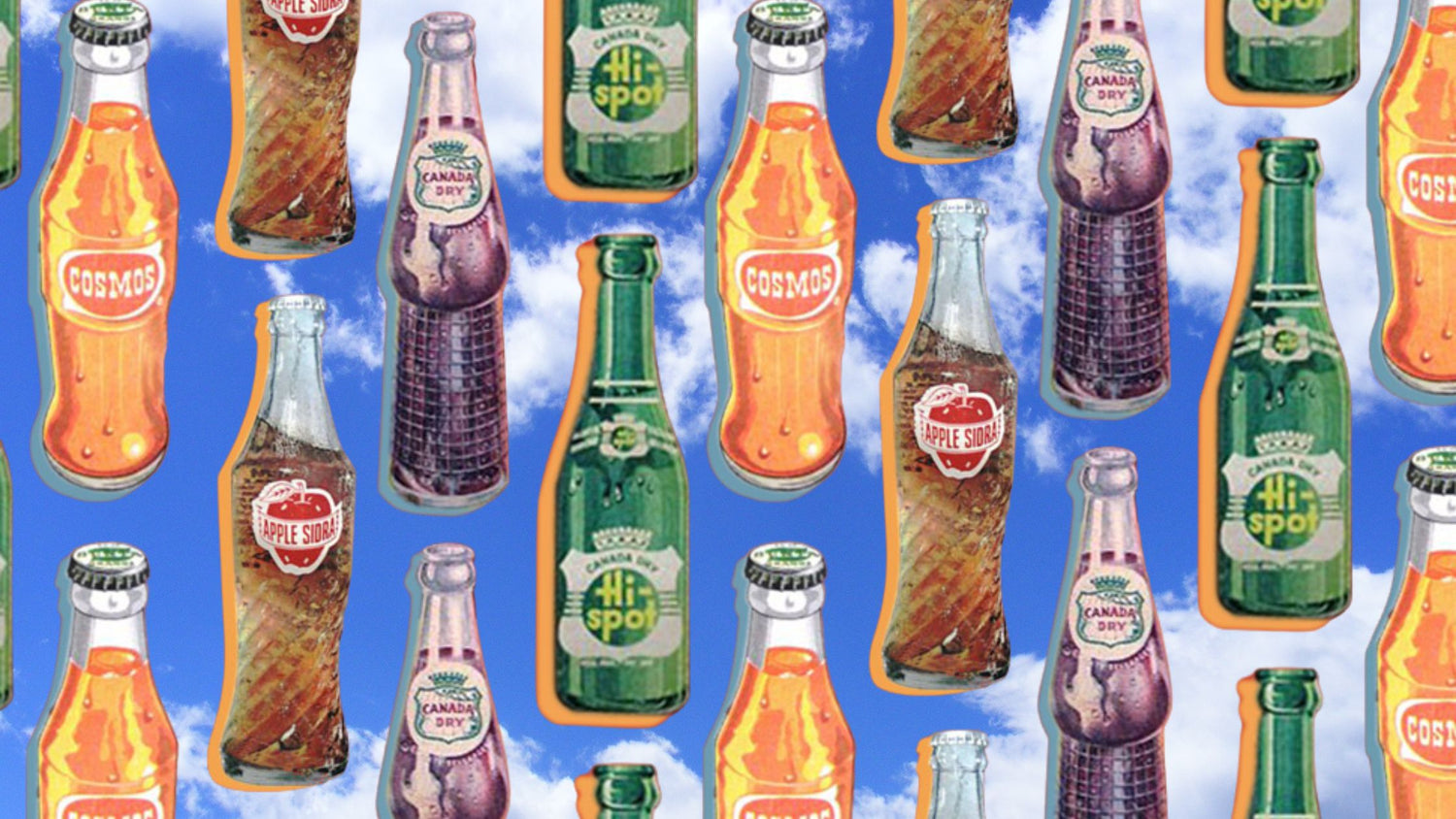We’re all familiar with bloating. It' s one of the most common (if not the most common) digestive symptoms that people experience across the world. There are loads of causes of bloating, and one of them is the consumption of carbonated drinks like energy drinks, sodas, and sparkling water.
In this article, we’re going to cover everything you need to know about bloating caused by carbonated drinks and how you can relieve bloating quickly and stop the digestive discomfort that these drinks can cause.
What is Bloating?
Bloating refers to abdominal distension, which is when the abdomen expands outwards and appears swollen and full). It can be mild, moderate, or severe and is often accompanied by a feeling of fullness and discomfort. It’s something that pretty much everybody will experience many times in their lives, but some much more than others. In fact, for some individuals, bloating is a daily occurrence and it can significantly disrupt their daily activities or negatively impact their self-esteem.
There are a million and one things that can cause bloating. Although it’s a completely normal response to eating a lot of food or eating certain types of food, ongoing bloating can indicate a deeper medical issue that should be addressed.
Some of the most common causes of bloating include:
- Being dehydrated
- Eating too quickly and swallowing air when you eat
- Eating a high volume of gassy foods
- Eating lots of spicy foods or fatty foods
- Consuming carbonated drinks like soda or sparkling water
- Having a disrupted gut microbiome or reduced gut motility
- Having a pre-existing digestive condition, such as irritable bowel syndrome (IBS), inflammatory bowel disease (IBD), or coeliac disease
- Experiencing reduced nutrient absorption in the gut
- Being more stressed than usual
- Experiencing natural hormonal fluctuations like those that occur during the menstrual cycle, pregnancy, or menopause
- Experiencing hormonal imbalances, such as in endometriosis, polycystic ovary syndrome (PCOS), or hypothalamic amenorrhoea (HA)
- Having kidney or liver disease
Because of the water-retaining effects of oestrogen and progesterone, women are more likely to experience bloating than men, particularly in the days leading up their monthly bleeds.
How Do Carbonated Drinks Cause Bloating?
You will have noticed that carbonated drinks contain lots of bubbles containing carbon dioxide. When you have fizzy drinks, these gas bubbles enter your stomach. The more carbonated a drink is, the more bubbles it will contain, and the more gas will enter your gastrointestinal tract.
When you drink a gassy liquid, the gas expands as it warms up in your body, increasing the pressure inside your stomach and intestines. This can lead to bloating, burping, and farting, none of which are particularly pleasant for you (or those around you if we’re talking about the last two)!
How Can I Relieve Gas Naturally?
If you experience bloating frequently and want to figure out how to relieve this annoying digestive issue, we’ve got the tips for you! Below, we’ve covered some top tips for busting bloating and relieving gas caused by carbonated drinks.
1. Find the perfect probiotic supplement
Probiotic supplements are some of the best natural remedies for bloating. They contain probiotic bacteria, such as Lactobacillus, Enterococcus, and Bifidobacterium, which can promote better digestive health and function.
Probiotic bacteria produce vitamins B12 and K. They also aid metabolism and promote better immune function. They’re found naturally in the gut, but their numbers can be depleted if you’re suffering from a chronic digestive disorder, have recently taken a course of antibiotics, or have a poor diet with very few nutritious foods.
Thankfully, if the numbers of probiotic bacteria in your gut are depleted, you can quickly repopulate these bacterial species by adding a daily probiotic supplement to your routine. You will need to make sure that the probiotic you choose contains at least one billion probiotic bacteria, as this is the recommended amount for optimal results.
A Dose For Bloating contains two billion probiotic bacteria, including Lactobacillus acidophilus and three strains of Bifidobacterium bifidum, so you can rest assured knowing that your digestive system will be at peace. Just one or two capsules of A Dose For Bloating can be enough to relieve gas and bloating within a few weeks of daily supplementation.
Not only does A Dose For Bloating contains two billion probiotic bacteria, but it also contains a unique blend of seven digestive enzymes (lipase, amylase, protease, cellulase, lactase, bromelain, and papain) and seven plant extracts (turmeric extract, peppermint leaf extract, dandelion root extract, fennel seed extract, liquorice extract, black pepper extract, and proprietary enzyme complex) to promote optimal gut health.
2. Take a digestive enzyme supplement before and after eating
Digestive enzymes, such as amylase, lipases, and proteases, are produced naturally in the body, especially shortly after you eat as their production is stimulated by the ingestion of food. However, if you’re feeling bloated and gassy after a large meal or fizzy drink, you might benefit from taking a digestive enzyme supplement to support your digestive system as it processes what you’ve ingested.
Of course, we recommend taking your daily dose of A Dose For Bloating when you need an extra boost of digestive enzymes for bloating. It contains all of the digestive enzymes you need to get rid of the gas, bloating, and discomfort that can be caused by drinking carbonated beverages.
3. Avoid gassy foods and drinks
We've already spoken about avoiding carbonated drinks, such as sodas and sparkling water, but if you’re prone to gas build-up, you should also think about avoiding gassy foods. Certain foods cause more gas production in the gut than others.
Gassy foods include cruciferous vegetables (such as broccoli and cauliflower), beans, legumes, and fermented foods (like tempeh, tofu, and sauerkraut). When ingested, they get broken down by the probiotic bacteria in your gut through fermentation, a process that causes gas production.
Sugary fruits like bananas and pears can also be the culprits of excess gas production and subsequent bloating.
It’s best to avoid these gas-producing foods if you’re trying to relieve or eliminate excess gas naturally. Switch to healthy alternatives with less gassy vegetables like carrots and salads, less sugary fruits like oranges and berries, and non-gassy sources of protein like chicken, turkey, and fish.
4. Consider drinking a cup of herbal tea
Certain herbs have natural gas relieving effects. These herbs include chamomile, peppermint, and turmeric. Get yourself some herbal tea bags and make yourself a cup of hot tea to enjoy when you’re feeling sluggish and full of gas. Stir some honey into the cup to add some extra flavour and sweetness and sit back as your digestive system relaxes!
5. Eat your food more slowly
When you eat too quickly, you can end up swallowing a lot of gas. This gas enters your body through the mouth and travels down to your colon, where it can build up and cause bloating and abdominal cramps.
Eating more slowly can reduce the amount of gas that you swallow and eliminate gas build-up and digestive discomfort. Take the time to chew your food thoroughly before swallowing it and wait until you’ve finished one spoonful before putting the next in your mouth.
This is part of mindful eating, where you focus on the food in front of you instead of thinking about your next meal or pondering over work emails. It means focusing on the spoonful of food that is in your mouth before thinking about the next spoonful! It sounds easy, but it’s something that many people forget to do when they’re eating, especially if they have busy lives and don’t tend to have time to sit down and eat at the dining table.
6. Stay hydrated throughout the day
Dehydration is a common cause of bloating and gas. Being dehydrated slows down your digestive processes and increases the time that your gut bacteria have to ferment the foods you have eaten. As we mentioned above, fermentation produces gas (carbon dioxide, to be precise), so more fermentation means more gas build-up in the colon and more burping or farting!
Staying hydrated is easy peasy, and it’s one of the best lifestyle changes you can make to eliminate bloating and gas. You don’t need to down water all day every day. Keep a water bottle by your side all day and take regular sips, maybe once every half an hour or so. This will keep your body hydrated without causing you to feel overwhelmed.
7. Massage your abdomen and apply heat
Gentle massage can be a simple and accessible way to relieve gas, no matter where you are. Rub your abdomen in a circular clockwise motion for a few minutes when you’re feeling particularly gassy and bloated.
After your gentle abdominal massage, apply heat to your abdomen to encourage the gas to move out of your digestive system or cause it to dissipate. Sit with a hot water bottle or microwaveable heat pad to provide immediate comfort and relief.








